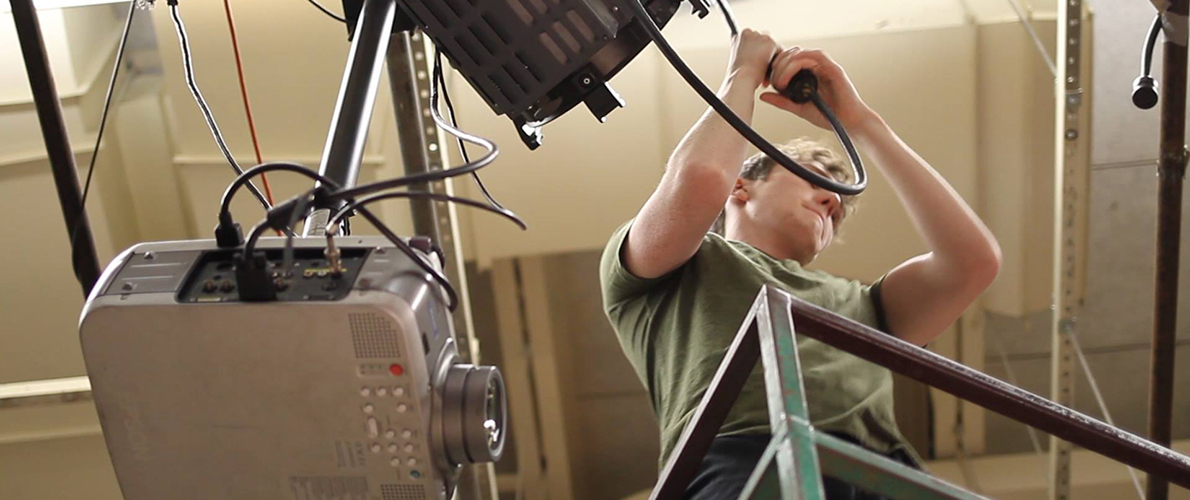Main Content
Specializations

Our specializations help you define your career goals as you manage multiple projects, explore creative opportunities, and gain real-life work experience. Each student enrolled in the Media Arts program will declare a specialization for the areas described below.
![]() Check out the Course Requirements and Specialized Curricular Guides below to help you outline what courses you should take each semester for all four years.
Check out the Course Requirements and Specialized Curricular Guides below to help you outline what courses you should take each semester for all four years.
Animation and Game Design
In Animation and Game Design, students choose courses on digital art creation, creative storytelling, and computer animation. Digital media artists write, design, and create computer animation, games, digital audio, and video for delivery across an array of media platforms. Through innovative forms and methods, students in the Animation and Game Design specialization can creatively explore and critically comment on the arts, content, media theories, and technologies that are shaping the future of media.
Cinematic Arts
Students learn how to tell compelling stories, and light, video, and edit professionally. Courses in field and studio production use state-of-the-art equipment to prepare students for positions in the industry.
Students have the opportunity to gain professional experience by working with WSIU Public Broadcasting. Post-production facilities include a full complement of editing and multimedia software, allowing student producers to bring their imaginations to life.
Audio Arts
Students develop their creative talents through course work in critical listening while they master the art and science of recorded sound. Instructors teach from a wide variety of professional, artistic, and historical viewpoints. They include sound art, professional music industries, sound design for moving image, audio engineering, radio broadcasting, and documentary radio production.
With the aid of our talented faculty, students learn to create and exhibit their projects produced in our custom sound studios. Our studios feature both analog and digital platforms, including Pro Tools HD surround mixing facility, a 32-channel analog studio with complete outboard processing, and a professional microphone collection.
Electronic Sports Media
Sports Production
Students learn the fundamentals of live-event video production and receive practical experience in a variety of production positions on live ESPN 3 telecasts.




